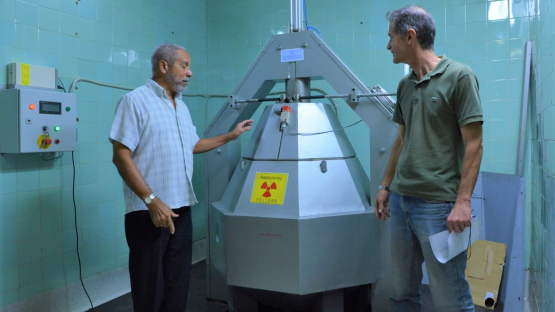Radioactive sources and nuclear material need to be protected against malicious acts, and for 25 years, the IAEA has been providing peer advice to countries, upon request, around the world on how to build, upgrade and maintain physical protection of facilities.
This year, the IAEA’s International Physical Protection Advisory Service (IPPAS) marks 96 reviews, including 22 follow-up reviews, in 57 countries. IPPAS, is a peer review service, in which international experts and IAEA specialists review nuclear security in a country or at a facility. Over the last 25, years more than 240 experts from 40 countries have contributed to IPPAS missions.
Under IPPAS missions, an international team of experts reviews a country’s nuclear security regime and compares it with international guidelines and best practices, in particular the 2005 Amendment to the Convention on the Physical Protection of Nuclear Material (A/CPPNM) and the IAEA Nuclear Security Series (NSS). IPPAS expert teams review the whole spectrum of security systems and measures a country has in place, from the regulatory framework to transport and information and computer security arrangements.
Based on its review, an IPPAS team identifies good practices and provides recommendations for improvement. Another essential feature of IPPAS is the follow-up assistance, such as training, technical support and more targeted assessments of various elements of a country’s national nuclear security regime.
“For a quarter of a century now, these advisory missions have brought tangible results to strengthen nuclear security, by offering advice on implementing international instruments and guidance for the physical protection of nuclear and radioactive material and facilities,” said Lydie Evrard, IAEA Deputy Director General and Head of the Department for Nuclear Safety and Security. “This assistance has helped many countries to enhance and maintain physical protection in all types of facilities and uses of nuclear material, keeping them secure – as well as safe.”







